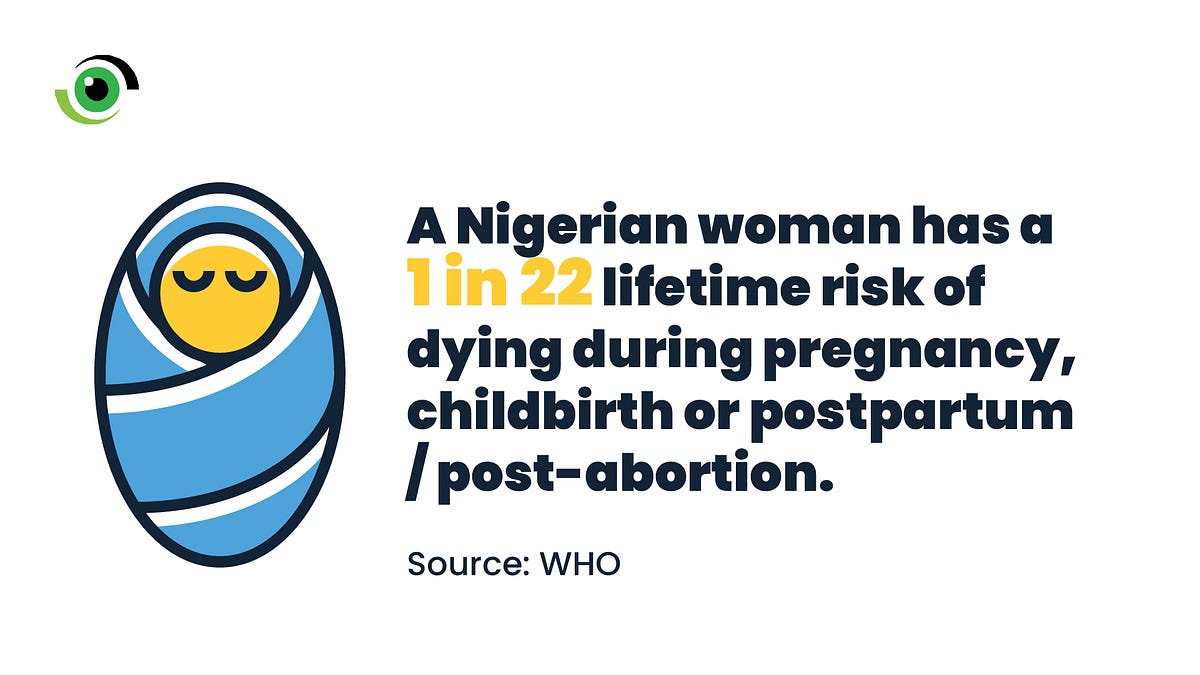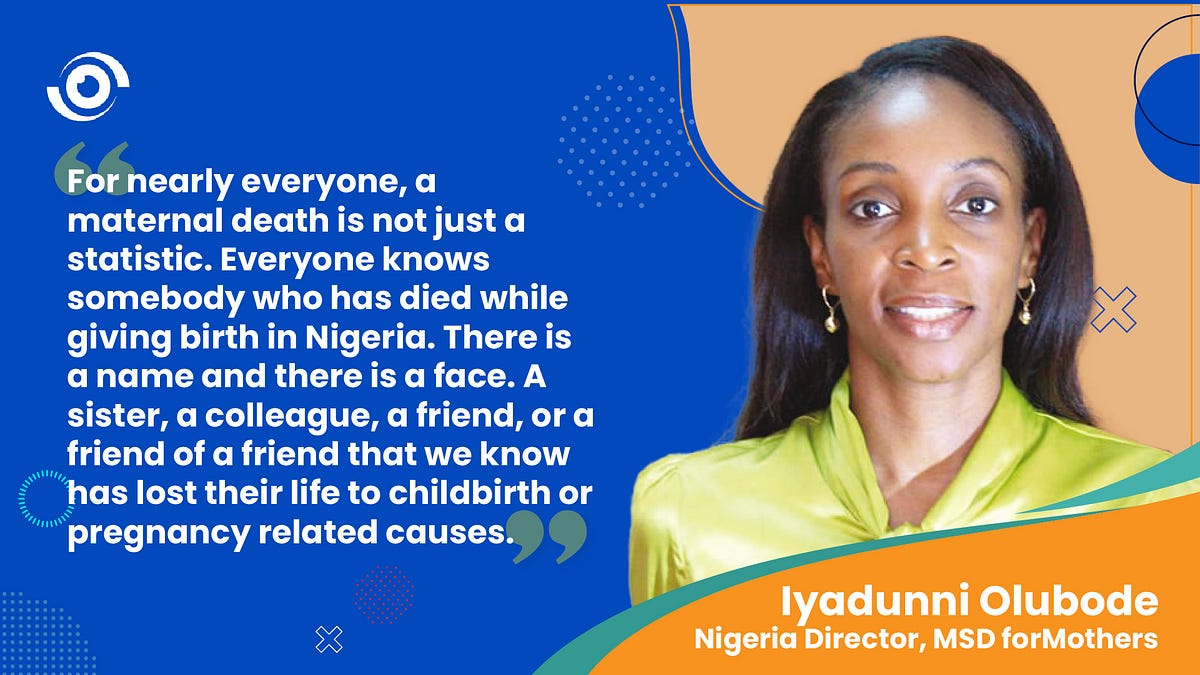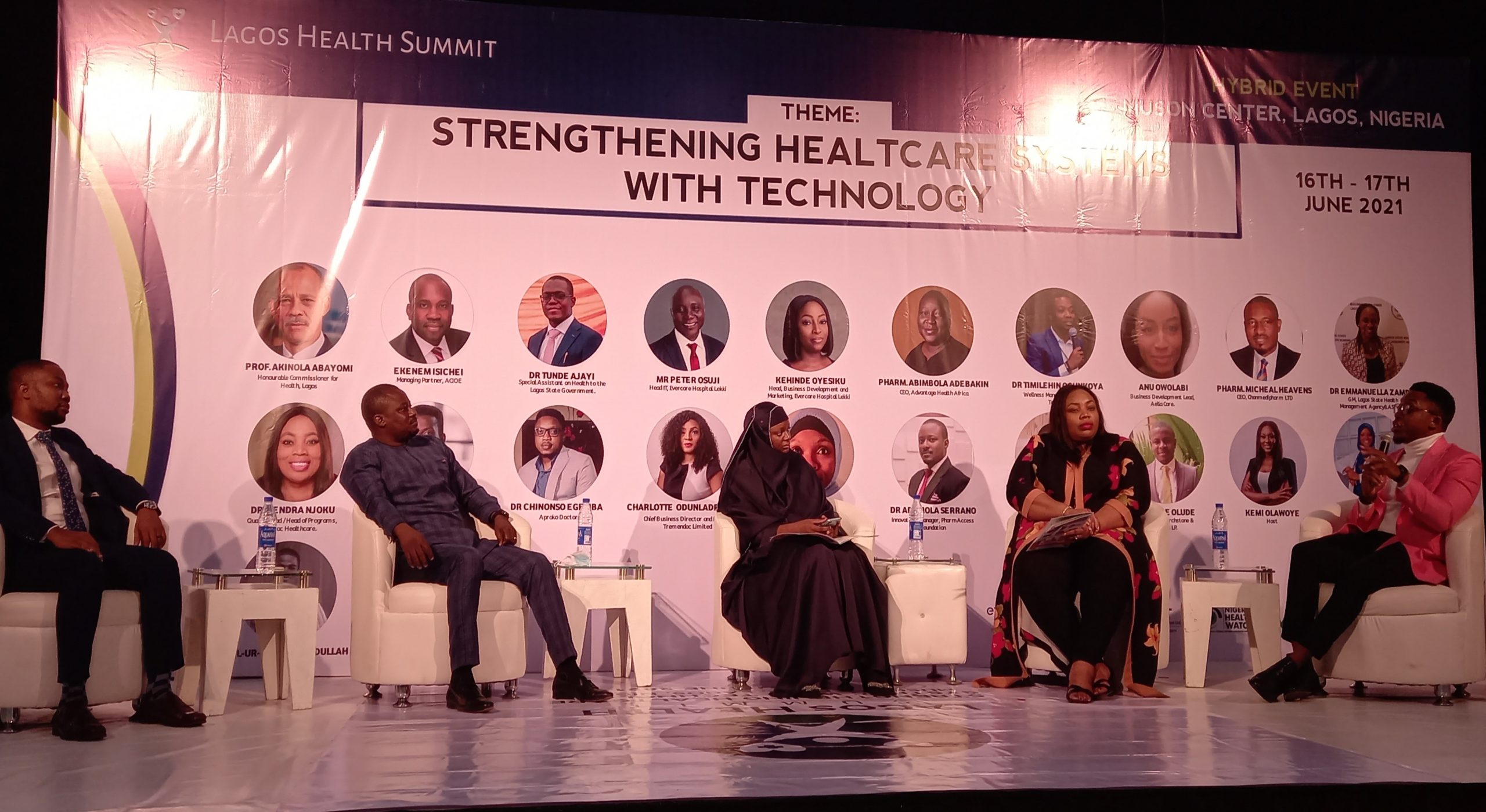According to the 2018 NDHS Survey, it is estimated that there are 512 maternal deaths per 100,000 live births. A Nigerian woman has a 1-in-22 lifetime risk of dying during pregnancy, childbirth or postpartum/post-abortion.
In 2020, the COVID-19 pandemic worsened the maternal healthcare service delivery value-chains across Nigerian states. There was increased pressure on healthcare providers due to limited resources and infrastructure available as a result of the mounting health crisis. On the one hand, women were hesitant to visit health facilities for fear of contracting the coronavirus, and on the other hand, health facilities were ill-equipped to provide maternal healthcare services in the face of an unexpected pandemic.
This exposed inefficiencies in the healthcare system, and highlighted opportunities to improve maternal healthcare services. One opportunity that was exposed by the pandemic was how digital technology can support and accelerate improvements in maternal healthcare in Nigeria.

The Lagos Health Summit: Strengthening Healthcare Systems with Technology
This formed part of discussions at the Lagos Health Summit held on 16–17th June, where key public and private sector stakeholders came together to discuss current challenges in maternal healthcare service delivery, current solutions being implemented in the face of the new normal, and existing opportunities to create solutions in digital technology that would strengthen systems and improve the quality of maternal healthcare. In his keynote speech, the Honourable Commissioner for Health in Lagos State, Prof. Akin Abayomi, represented by Dr. Oreoluwa Finnih, SSA on Health to the Executive Governor of Lagos State, spoke on the commitment of the Lagos State Government to leverage technology as a key driver for quality healthcare, mentioning that the state commissioned maternal and child health centres in the four LGAs of Ikorodu, Badagry, Epe and Eti-Osa, adding that the use of technology tools and data in these centres, has created an enabling environment for faster and more efficient use of resources to provide better quality of care.
MSD for Mothers Helping to End Maternal Mortality through Digital Technology
Iyadunni Olubode, Nigeria Director of MSD for Mothers mentioned during her thought-provoking presentation on the opportunities that lie in employing digital technology to accelerate maternal healthcare improvements that “For nearly everyone, maternal death is not just a statistic. Everyone knows somebody who has died while giving birth in Nigeria. A sister, a colleague, a friend, or a friend of a friend that we know has lost their life to childbirth or pregnancy-related causes.” She opined that technology is a powerful tool that can be leveraged to address the perennial challenge of maternal mortality in Nigeria. According to her, the poetry of digital is underlying in MSD for Mothers’ approach to helping to solve maternal health challenges. “Technology has the capacity to indeed accelerate the reduction of maternal mortality in Nigeria,” she said.

MSD for Mothers supports several organisations providing solutions to maternal healthcare challenges through digital technology. For example, the organisation supports OMOMi, an app that provides patient reviews of their experiences of maternal healthcare in hospitals. According to Olubode, “It is important that women understand what quality care looks like and we hope that women have a platform to advocate for themselves and to talk about their care experiences. This will signal to healthcare providers that this is the way women want to be treated so that they can adjust their quality standards.”
The Impact of Digital Technology on Maternal Health Education
MomCare is a platform that supports expectant mothers throughout their pregnancy journey. By combining a care bundle and the quality improvement method, SafeCare, under one umbrella, mothers are empowered to access care they can trust as transparency and accountability is ensured. MomCare tracks a mother’s journey through her pregnancy, making funds available to ensure that she has access to quality care when she needs it. It uses digital technology and data to track pregnant women’s journeys and ensures a safe pregnancy and delivery with a pre-determined cost, reducing maternal and neonatal mortality.
Speaking at the summit, Dr. Ademola Serrano, Innovations Head at PharmAccess Foundation, implementers of the MomCare platform, said that applying digital technology to healthcare makes quality care provision more effective and efficient. The MomCare app takes antenatal care and delivery data and uses it to help providers and payers make adequate decisions for the care of the mother and child. “How do we adapt information technology and ensure that women have access to maternal health information? We partnered with a state regulator to do a health facility inspection. That has already dropped their cost of operation,” he said.
Dr. Kendra Njoku, Quality Lead at mDoc added that “Digital health solutions like mDoc, the online directory, reduces cost of care for women, provides knowledge on where to seek care, and augments physical care by providing an integrated approach to accessing better quality care”.

The Digital Divide
A digital divide is a social inequality that affects access to information and communication technology, (ICT). As a result of the inefficiencies it exposed, the COVID-19 pandemic aided in accelerating the acceptance of digital health. However, inequity in access to this resource exists because only 83 percent of women in Nigeria are mobile phone owners and a mere 38% are mobile internet users. It is important to think about the women who do not have access to the internet when designing solutions to increase access to maternal health services. There is a need to provide solutions that employ basic-feature phones where SMS messages and USSD codes can be used to provide women with life-saving maternal healthcare data and information, while also providing prompts to attend antenatal care and other routine facility-based appointments.
Recommendations for Public-Private Partnerships in Providing Maternal Healthcare Solutions Using Digital Technology
The role of the private sector in supporting governments in delivering quality maternal healthcare cannot be underestimated. It is important for the government to engage with the private sector including academia, research organisations, finance companies, venture capitalists and startups.
The private sector drives efficiency, expertise, innovation and capital, and investment attractiveness to the equation. The private sector and the government at local, state, and federal levels must work together to ensure that every woman has access to tools and commodities that ensure she does not lose her life while giving birth in Nigeria.


